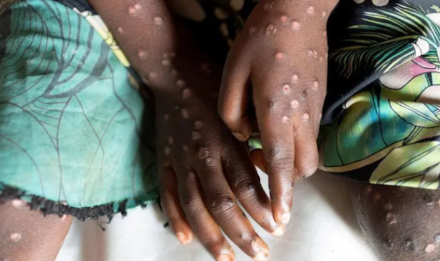The Ministry of Health has cautioned Kenyans against spreading false information about Mpox. This follows the circulation of unverified reports on social media claiming that a local media outlet had recorded three cases of Mpox. The media house has since denied the allegations, urging the public to disregard the misinformation. In a statement on X, the ministry advised Kenyans to avoid fake news and rely on verified updates from the ministry.
“Stop spreading misinformation about Mpox! Always rely on accurate information from trusted sources such as the Ministry of Health. Let us work together to keep our communities informed and safe,” the statement read.
Kenya reported its only Mpox case on July 31, involving a 42-year-old long-distance truck driver residing in Kinoo estate, Kiambu County, according to the Ministry of Health. The patient had traveled from Kampala to Mombasa on July 12 and was en route to Tanzania when the case was detected at the Taveta border crossing.
“The good news is that the patient has fully recovered,” Health CS Deborah Barasa said.
“Testing of suspected cases is currently being conducted at the Ministry of Health National Public Health laboratories (NPHL) in collaboration with partner institutions such as KEMRI.”
Kenya has been urged to prepare for a potential Mpox vaccination campaign in case of a surge in cases. Although the country has not yet approved any vaccines, the World Health Organization (WHO) has pledged to assist in expediting regulatory approvals.
The WHO expects countries experiencing outbreaks to begin planning Mpox vaccination efforts, focusing on high-risk populations. Additionally, the organization has advised these nations to convene national immunization technical advisory groups and develop policies to apply for vaccines from sources like Gavi or other international bodies.
“These temporary recommendations are issued to states parties experiencing the upsurge of Mpox, including, but not limited to, the Democratic Republic of the Congo and Burundi, Kenya, Rwanda, and Uganda,” said the International Health Regulations (2005) Emergency Committee on Mpox 2024, appointed by the WHO.
Mpox is a viral disease transmitted through contact with an infected person, contaminated items or surfaces, and sexual contact. Those at risk may require hospitalization or antiviral treatment. High-risk groups include infants, young children, pregnant women, the elderly, and severely immunocompromised individuals. Confirmed cases should be advised to isolate until their rashes are fully healed.



